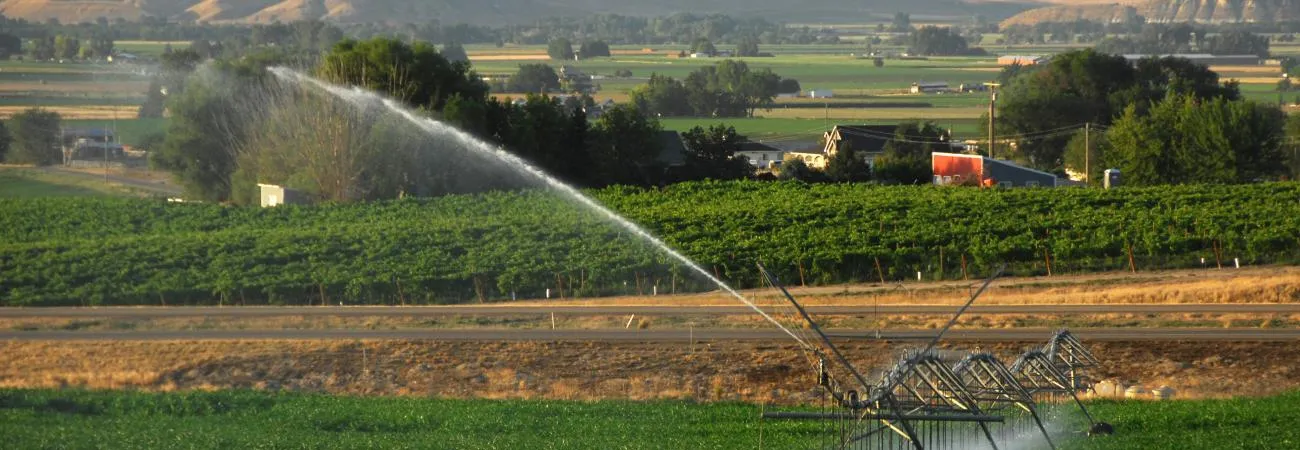i ECONOMY
With a rapidly growing population and increasing water scarcity, climate-smart on-farm water management is critical for sustainable food production in Pakistan, emphasises Muhammad Arif Goheer, Head of Agriculture, Forestry and Land Use Section at Global Change Impact Studies Centre, the Ministry of Climate Change. "Pakistan, an agriculture-dependent economy, faces a rising demand for water-intensive crops due to its growing population. Traditional flood irrigation methods used by farmers are inefficient, leading to water wastage and soil degradation," he said while talking to WealthPK. "Climate change-induced variations in precipitation patterns pose a significant threat, making it imperative for farmers to adopt strategies that can withstand changing climatic conditions." He said one major obstacle to implementing climate-smart water management practices was the lack of awareness and education among farmers. "Many are still unaware of the benefits of modern irrigation techniques such as drip and sprinkler systems, which can significantly reduce water usage while increasing crop yields."
"Limited access to capital and resources further hampers the adoption of these technologies, particularly among small-scale farmers who form the backbone of Pakistan's agriculture sector," he pointed out. "Farmers commonly practice flooding as an irrigation method, which has an efficiency of no more than 50%. This results in low irrigation efficiency at the farm level, which significantly hinders the attainment of production potential from otherwise highly productive agricultural lands," he added. Arif Goheer said that to address this, targeted investments in climate-smart agriculture were essential. "Additionally, empowering women farmers with knowledge and resources will enhance their resilience." He pointed out that Pakistan had witnessed severe droughts and devastating floods, and balancing water availability and demand was crucial. "Investments in improved seeds, technology and water infrastructure are necessary to mitigate these challenges," he added. "Despite these challenges, there are promising opportunities on the horizon. The government and various non-governmental organizations increasingly recognise the need to invest in sustainable water management initiatives."
"Financial support and incentives are provided to farmers willing to transition to more efficient irrigation methods. Additionally, partnerships with research institutions and the private sector are fostering the development and dissemination of innovative technologies tailored to the specific needs of Pakistani farmers." According to WealthPK Research, Pakistan's crop water productivity falls behind the global average, with wheat and rice crops exhibiting lower yields per unit of water. The current water productivity of wheat stands at 0.76 kilogrammes per cubic meter of water, 24% less than the global average of 1kg per cubic meter. Similarly, the water productivity of rice crops measures 0.45kg per cubic meter, approximately 55% below the average value for rice in Asia. Nevertheless, farmers are actively seeking ways to tackle these challenges and enhance crop water productivity.
Credit: Independent News Pakistan (INP)









